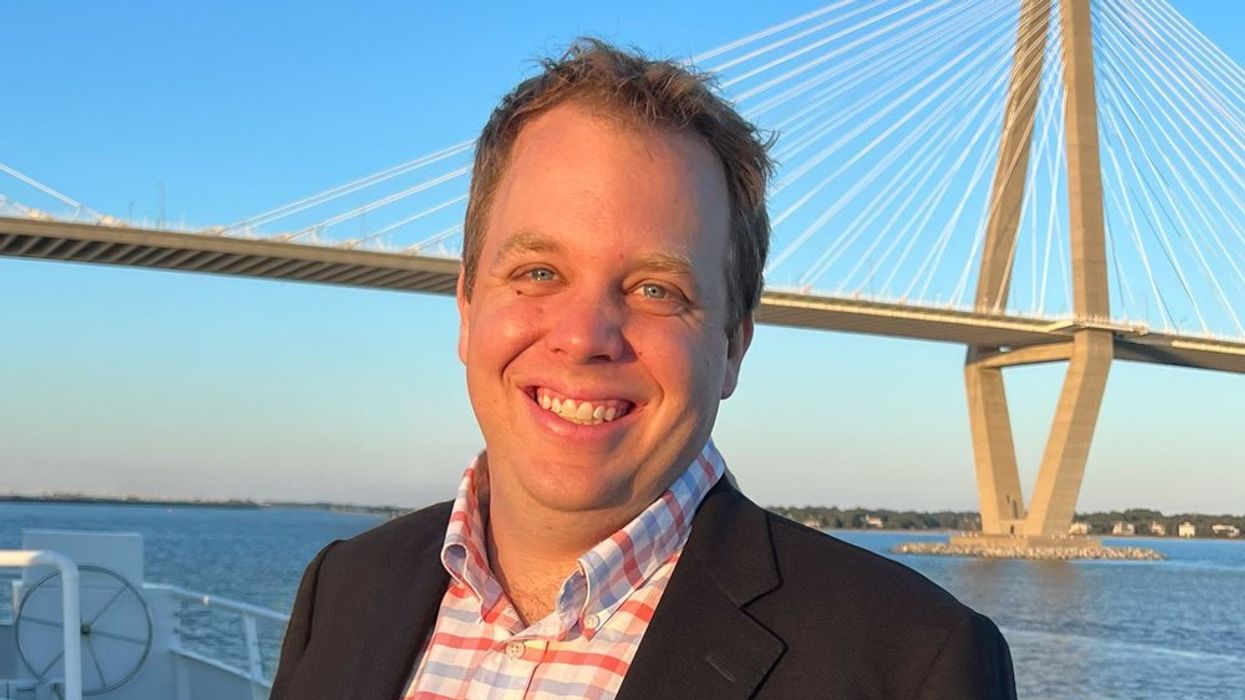Nevins is co-publisher of The Fulcrum and co-founder and board chairman of the Bridge Alliance Education Fund.
Pearce Godwin is founder of the Listen First Project and the #ListenFirst Coalition of 500 organizations bringing Americans together across differences to listen, understand each other and discover common interests.
He catalyzes the movement to save America from toxic polarization by shifting social norms from division, distrust, contempt and violence toward connection, understanding and belonging. Pearce manages large-scale, co-created endeavors such as Meeting of America and the annual National Week of Conversation to engage as many Americans of all backgrounds and beliefs as possible to turn down the heat and find a way forward together.
His work has been recognized across national media, including interviews on Fox News and MSNBC and in the Wall Street Journal. In addition, he regularly writes for USA Today. Godwin has visited all 50 states, loves America and his fellow Americans, and maintains faith that, out of many people, one more perfect union can be built together.
To engage more Americans in this hopeful mission, Pearce has forged partnerships with some of the country’s most influential entities such as Walmart, Target, McDonald’s, Harley-Davidson, Dick’s Sporting Goods, Petco, iHeart Media, Duke University, Liberty University and Stanford University.
Pearce graduated from Duke University and received an MBA from the University of North Carolina-Chapel Hill. He spent five years working in Washington, D.C., in the U.S. Senate and as a national political consultant for presidential and statewide campaigns.
Before moving home to North Carolina in 2013, he spent six months in Uganda, where he wrote “ It’s Time to Listen.” That message — printed in dozens of papers across the United States — launched the Listen First Project and led thousands to sign the Listen First Pledge (“I will listen first to understand.”)
In 2017, as division turned to violence, Godwin left his marketing job, fully committing to heal America, and launched the #ListenFirst Coalition. In 2018, he co-created the first annual National Week of Conversation and hosted the kickoff event, Listen First in Charlottesville. In 2020, he led the crisis response campaign #WeavingCommunity. In 2021, he served as associate producer of “The Reunited States,” a film about bridging divides, and created its #HealAmericaPledge. He then led America Talks as the kickoff event for the annual National Week of Conversation.
In 2022, Godwin piloted Meeting of America, shared the hope of the bridging movement in the Wall Street Journal and in a PBS special and testified before Congress. The #ListenFirst message has reached more than 50 million people.
I had the wonderful opportunity to interview Godwin for the CityBiz “Meet the Change Leaders” series. Watch to learn the full extent of his democracy reform work:
- YouTubewww.youtube.com




















Trump & Hegseth gave Mark Kelly a huge 2028 gift